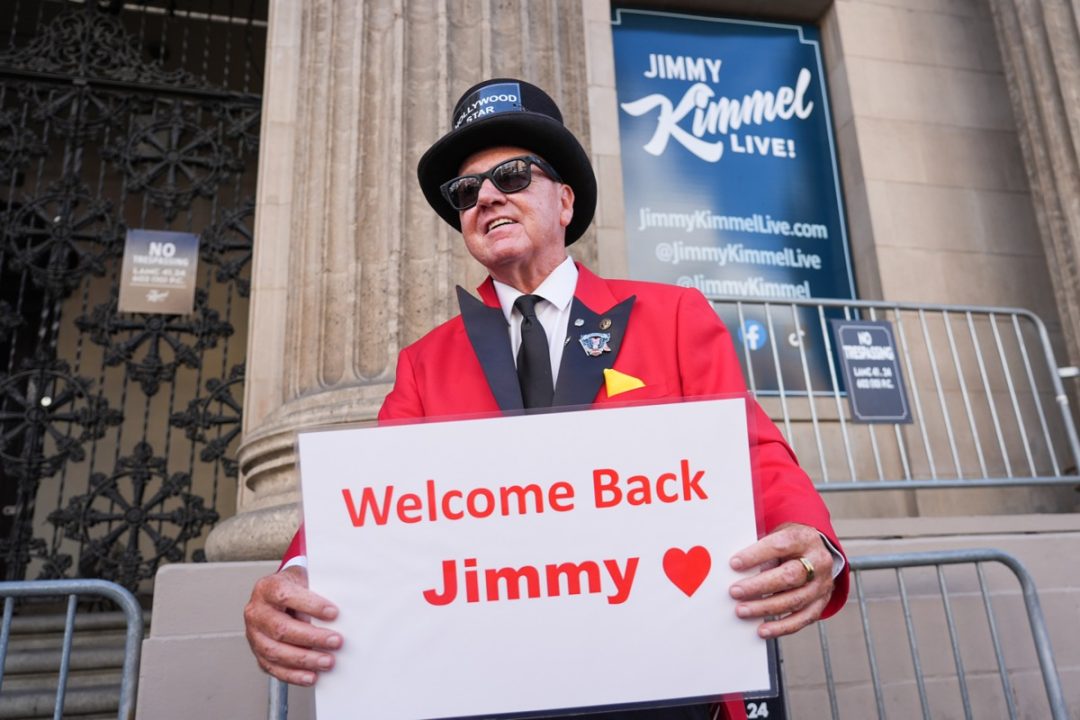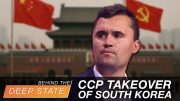
“If you strike me down, I shall become more powerful than you can possibly imagine.” This line, uttered by Star Wars character Obi-Wan Kenobi, comes to mind with recent developments. Consider:
Following Turning Point USA (TPUSA) founder Charlie Kirk’s assassination, his group has seen record interest. So it is, too, with hard-left comedian Jimmy Kimmel’s return to his late night show after an “indefinite” suspension thought motivated by Trump administration action.
Regarding TPUSA, it had an unprecedented 120,000 requests to create new school chapters after Kirk’s memorial service on Sunday. Andrew Kolvet, The Charlie Kirk Show’s executive producer and a TPUSA spokesman, summed up the effect. As Fox News reports:
“Charlie’s vision to have a Club America chapter in every high school in America will come true much, much faster than he could have ever possibly imagined,” Kolvet wrote on X on Sept. 15, calling the response to expand Kirk’s mission “truly incredible.”
In a separate post, Kolvet wrote, “This is the Turning Point.”
Kimmel’s return may not be a turning point, but, for sure, it is at least a shot in the arm. As entertainment-awards news site Gold Derby informs:
Jimmy Kimmel’s return to late-night television on Tuesday brought in a massive 6.26 million total viewers, despite being preempted across 23 percent of U.S. households due to affiliate backlash.
… The huge ratings, coupled with more than 26 million views of his monologue across YouTube and social platforms, reflect a surge of public curiosity and a significant cultural flashpoint following Kimmel’s six-day suspension over comments he made regarding the murder of conservative activist Charlie Kirk.
These are apparently, do note, the highest numbers ever in Jimmy Kimmel Live!’s 22-year history.
Don’t Aim Fire Downward
Prior to Tuesday, however, Kimmel was leaking serious oil. He’d been averaging approximately 1.6 million viewers per episode this year. This is down from a 2015 peak of nearly 2.4 million — a 37-percent decline. And viewership had fallen further, to about 1.1 million, in early September.
More significantly, the comedian’s key demographic (adults 25-54) was almost one million in 2015. This had cratered to 261,000 in 2025 — a staggering 72-percent loss.
And Kimmel’s (temporarily?) reinvigorated ratings enabled him to take yet another shot at President Donald Trump. (This appears his main preoccupation, by the way.) On his Tuesday show he played a video clip of Trump criticizing his program, saying it “had no ratings.” To this the host retorted:
“Well, I do tonight.”
In reality, Kimmel owes Trump a thank you, and there’s a lesson here. I remember the great Rush Limbaugh well; he featured my work numerous times on his show. And there’s one thing Limbaugh, media savvy as could be, never, ever did. He never responded to criticism from those of lower public stature. (And since Limbaugh had history’s biggest radio show, this basically meant you had to be the president or pope for him to respond.)
The principle is simple: Engaging with a person “below you” fame-wise gives him attention he wouldn’t otherwise enjoy. You elevate him, becoming the best agent he could ever have. This is what Trump inadvertently did for Kimmel.
This relates to a much-known weakness the president has: He’s very thin-skinned. It would serve him and his cause well, however, if he’d refrain from reacting to the world’s Kimmels. A better strategy is to wither such critics on the vine. Let the market terminate them — as it was in the process of doing with Kimmel.
A False Martyr
To be crystal clear, my article’s opening shouldn’t be construed as drawing any equivalence between Kimmel and Kirk. Kirk is an actual martyr, brutally murdered for his beliefs. Partially for this reason, too, his assassination’s social effects will be long-lasting and possibly permanent.
As for Kimmel, he hasn’t even experienced “soft” martyrdom. As to this, commentator Bill O’Reilly has made an interesting point, asserting that Kimmel’s suspension was mostly unrelated to censorship. Rather, it resulted from affiliate pressure sparked by the comedian’s September 15 implication that Kirk’s assassin was a MAGA adherent.
Realize as well that ABC could have been using Kimmel’s deceitful remarks, and the consequent backlash, as a pretext for terminating a show they wanted to cancel, anyway, because it was losing them money. Under this theory, there’s an irony to Federal Communications Commission (FCC) chairman Brendan Carr’s much-criticized reaction to Kimmel. (As a reminder, Carr suggested the comedian should be suspended and said, “We can do this the easy way or the hard way.” Kimmel was put on leave hours later.)
That is, if this really was not causation but correlation, then Carr’s comments weren’t responsible for Kimmel’s short-lived cancellation.
They were actually responsible for his reinstitution, as they sparked accusations of government coercion and a massive backlash.
Mostly Unsaid
But this is where O’Reilly’s analysis — his claim that censorship was not at issue — gets really interesting. The alphabet networks use public airwaves and receive FCC licenses. This is based, O’Reilly emphasizes, on the presumption that they’re serving the public interest. Despite this, in recent years they’ve essentially blacklisted conservatives. Even O’Reilly, our time’s best-selling nonfiction author, no longer gets invited on to the nighttime shows.
Put differently, this reasoning’s proponents say that these networks have essentially become an arm of just one major political party. They are pushing just one particular ideology. They use our public airwaves to do it, too.
Perilous Road
This said, it is dangerous having our government in the censorship business, even peripherally. Yet this is where there’s more irony — and profound hypocrisy.
The Left has been censoring millions of people for years via Big Tech (I’ve been one of the victims). This was at the government’s behest under Joe Biden, too. Why, Google just admitted that the Biden administration pressured it to engage in censorship — and the company complied. Facebook and then-Twitter also engaged in government-inspired censorship. (It was so bad that I’d dubbed this Big Brother-esque phalanx of phoniness “GoogTwitFace.”) The difference?
Since this was calculated and sneaky, no announcement was made. The Biden administration just did it, covertly.
That is, until the Bidenites became brazen enough to create a “Disinformation Governance Board” in 2022. (Public backlash ended this as well, after five months.)
Yet there’s also another difference: The Kimmel suspension lasted six days and affected one man.
Big Tech censorship has endured for a generation and, again, has affected millions.
Oh, you didn’t hear about it 15 years ago? Well, I warned of it in 2008’s “The Race for the American Mind.”
And one more thing: That censorship is less intense but ongoing, and can be ratcheted up at any time.
And just as Kimmel is not funny, that, my friends, is no joke.
Addendum: For those interested, some of Bill O’Reilly’s commentary on the Kimmel situation is below.




